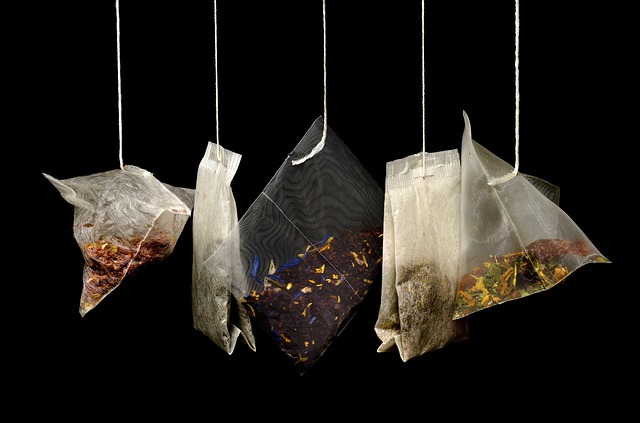Finding The Right Hot Drink – Tea In French Posted by John Bauer on Aug 9, 2019 in Vocabulary
Making mistakes and not knowing the right mot (word) is a big part of learning le français. Improving in a language often depends more on not being afraid of the embarrassment that comes from being wrong than memorizing every conjugaison.
Sometimes there are multiple words en français for something that only has one word in English. That can get confusing when you need to figure out how to separate a single word into 2 ideas.
I recently wrote about an example here on the French blog going over the difference between le tambour and la batterie and the frustration that comes with learning those words when in English they’re just drums.
Drumming Up New Vocabulary – Talking About La Batterie In French
Cependant (however), even if it’s difficult at first, once you get the hang of le nouveau vocabulaire (the new vocabulary) you really miss them en anglais!
A less musical example recently came up au bureau (at the office) while I was taking une pause (a break) and wanted du thé (some tea). It was already late in the afternoon so I really didn’t want anything with caffeine in it, but wasn’t sure what kind of tea was available in la salle de repos (the break room).
Whenever these situations come up I have two options:
1) Admettre que je ne sais pas quelque chose.
2) Ne rien dire et prendre quelque chose au hasard.
1) Admit that I don’t know something.
2) Don’t say anything and take something randomly.
Option one can be embarrassing and doesn’t always work, but option two means I’ll never improve my French!
So like many times before, I prepared myself for the embarrassment of asking something that was obvious to les francophones (French speakers):
Salut !
Ça va, John ?
Ça va, et toi ?
Ça va.Hi!
How ‘s it going, John?
Alright, and you?
Alright.
After getting through the easy part I could already feel my heart start to pickup. It’s crazy how something as mundane as asking for du thé can become nerve wracking in a new language!
Tu sais où est le thé ?
Oui, juste là, regardes.
Ah… Oui….You know where the tea is?
Yes, just over there, look.
Ah… Yes….
I looked over at the countless bags of unfamiliar marques (brands) of tea and was nowhere closer to finding ma boisson chaude (my hot drink).
Mais… je veux du thé sans caféine.
C’est-à-dire ?
Comme du thé aux fruits ou bien du thé à la camomille. Ces genres de thés existent en France ?
Ça n’est pas du thé !But… I want tea without caffeine.
What do you mean?
Like fruit tea or chamomile tea. Do these kinds of teas exist in France?
That isn’t tea!
I was very confused at this point in the conversation.
How are things that are tea not tea?
Tu veux pas dire une infusion ou une tisane ?
Une infusion ?
Oui, c’est une boisson chaude. Par exemple une infusion aux fruits est une boisson chaude sans caféine.
Ah ! Oui, c’est exactement ça !You don’t mean to say an infusion or a tisane?
An infusion?
Yes, it’s a hot drink. For example a fruit infusion is a hot drink without caffeine.
Ah! Yes, that’s exactly it!
It was like the stars aligned as I realized that there were different words for what are just different kinds of teas in English. With a little more help from mon collègue (my coworker) I had mon infusion and was excited to have learned something new en français.
Le thé: Tea, hot drink made from actual tea leaves.
L’infusion: Herbal tea, hot drink with no actual tea leaves.
La tisane: Herbal tea, mostly interchangeable with l’infusion.
As I read les définitions and learned le vocabulaire, the embarrassment quickly faded away and I was glad to have learned something new.
Après tout (after all), if I had just decided to grab something randomly that looked like what I wanted, I would have never gotten a free French lesson.

Build vocabulary, practice pronunciation, and more with Transparent Language Online. Available anytime, anywhere, on any device.





Comments:
marcia:
1) Quelle est la differance entre “admettre” et “avouer” en ecrivant la deuxieme personne de l’imperatif.
John Bauer:
@marcia Salut Marcia ! Effectivement, ces deux mots peuvent être tous les deux traduits par “admit” 🙂 Il n’y a donc pas une grande différence entre eux.
Pour les conjugaisons : admets / admettez | avoue / avouez
Errol:
Thanks, John. Now I know why (Agatha Chrisite’s) Poirot always gets funny looks when he wants “une tisane” for tea.